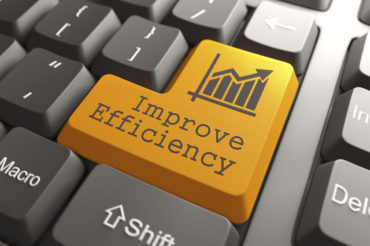
For procrastinators looking for ways to avoid the important tasks in front of them, we live in dangerous times. If avoidance and procrastination is a problem for you – and for most people it is to some degree – here are some tried and true tips to stay on task, productive and still have time for leisure.
- Start with the basics – get enough sleep and eat breakfast. It might sound corny, but facing the day sleep-deprived with low blood sugar is a sure-fire way into a daily downward spiral. Breakfast doesn’t have to be complicated. Blend up a yogurt/fruit smoothie with some Greek yogurt (which has more protein than other types), and you’ll start the day with protein and many important nutrients. You can make this the night before and drink it as you grab your work papers or your morning coffee.
- Most of us start the day with some sort of plan and allow ourselves to get side-tracked as the day progresses. Interruptions and distractions seem to multiply throughout the day. With this in mind, start your work day with the your most challenging (or least-favorite) task first. Getting a head start on a major task first – even before checking your email – will help you feel in charge and motivated.
- While we are on the subject of distractions, try to eliminate or minimize the many self-imposed time-wasters that we all have to negotiate. It’s imperative that procrastinators turn off the alerts on their phones or iPads. If your job requires you to respond quickly to certain emails or calls, utilize the features of your email or smart phone to create a VIP list, and limit this list to only those contacts who truly merit an instant response. For all others, set specific times and time allotments to return calls, check personal emails, Facebook or Twitter accounts. There are many other communication sources that can suck you down a rabbit hole. These time-wasters might include surfing the net for serious news, like stock market data, news releases or even online versions of industry publications. Without exercising constant discipline, it is so easy to justify getting off-track pursuing interesting leads rather than key tasks.
- Adopt the two-minute rule. If something takes less than two minutes from start to finish – e.g. responding to a request for a meeting time – just do it and get it out of the way. For the rest of your tasks, the pros suggest ditching the to-do list – you know the one that always has a few items that never get completed – in favor of scheduling chunks of time to handle specific tasks. Chances are this will not only help you be productive, but it will force you to be realistic about what you might be able to accomplish in a day, a week, etc.
- Take breaks. Opinions vary as to the amount of time the human brain can focus on any given task. However, we all know that posture, breathing and blood sugar all suffer when we hunch over our keyboards or laptops without stretching, moving or taking a meal break. A quick walk around the building, a snack or a short tea or coffee break can revitalize us noticeably and make us more productive when we return to our work. Hydration also is key. Most of us forget to drink sufficient water, even if we remember to take lunch breaks.
None of the above make tough tasks easier, but they do help us to avoid the pitfalls and pressures –both unavoidable and self-imposed – that block our productivity.
